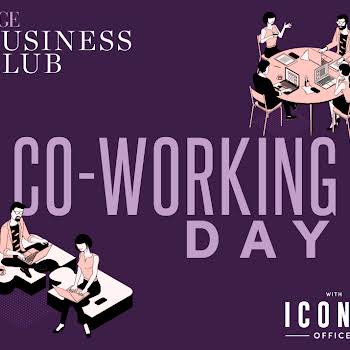
By Colette Sexton
26th Feb 2019
26th Feb 2019
Colette Sexton, news correspondent at The Sunday Business Post, gives her two cents on working for free.
It would be easy for me to tell readers to never to work for free. But that would make me a hypocrite. When I started out in my career, there were several occasions when I was asked to work for nothing, and I did it. I wrote articles, I interviewed people, I gave speeches, I appeared on TV and radio — all for no pay. Not only did I work for free, it often actually cost me money as I needed transport or food or other basic expenses to facilitate the work.
I’ve stopped saying yes to working for free now, but looking back, honestly, I do not regret those jobs. I might have been broke but they were a means to an end. They helped me to build my career, portfolio and contacts. Of course, that does not make it right. In a perfect world, no-one should have to work for nothing, and no-one should ask someone to work for nothing. Unfortunately, we don’t live in a perfect world.
As much as it kills me to admit it, the reality is that working for free can lead to long term career gains in some cases. However, it is important to identify genuine opportunities and protect yourself from the complete gangsters.
When to ask for payment
If you are approached with an opportunity, the first rule is to ask for payment. The employer could be just chancing their arm and hoping that you will work for nothing. It doesn’t hurt to ask.
If they say they have no budget for the project, then ask if others are being paid to take part. If others are being paid, then put your foot down and demand payment also. If they are not, try as best you can to get even a small amount of money out of them. Ask if they will pay your travel and/or food expenses. You might feel awkward to keep pushing, but they will value you much more if they are paying you even a little bit.
If the answer is still no, then ask if this work might lead to paid work with the company. Sometimes a company wants to test the water with you on a small project before committing to bringing you in and paying you subsequently. If this is a possibility, then ask what the nature of future paid work is and when do they expect it to happen.
When to work for free
If you are asked to work for free and you have exhausted all ways of securing payment, you are completely entitled to say a polite, but firm, no. You do not own them anything.
If you believe the opportunity will be genuinely great for your career and it will be worth not getting paid, then agree to either do it for a set number of weeks or for one project. At the end of the time period or project, if they approach you to do more work then ask for payment. You have proven yourself at this point. They are asking you to do more so they must like your work and therefore, you should be paid for it.
If you are promised “exposure” in return for free work, then get in writing exactly what that exposure is before you spend any time on it. For example, if you are asked to work on a film and they promise to mention you in the credits then find out exactly what your title will be in the credits and at what stage it will appear.
It is also worth checking out the company’s reputation with others in your industry. Do they often use people for free work and dump them afterwards, or do they have a track record in paying or even hiring people after internships and projects?
Finally, if any of the above actions make you feel uncomfortable, keep in mind that this person had no issue in approaching you and asking you to give your time, skills, and effort to something for no payment. You are perfectly entitled to respond accordingly to that level of complete cheek.
Featured image: Niels Steeman on Unsplash























